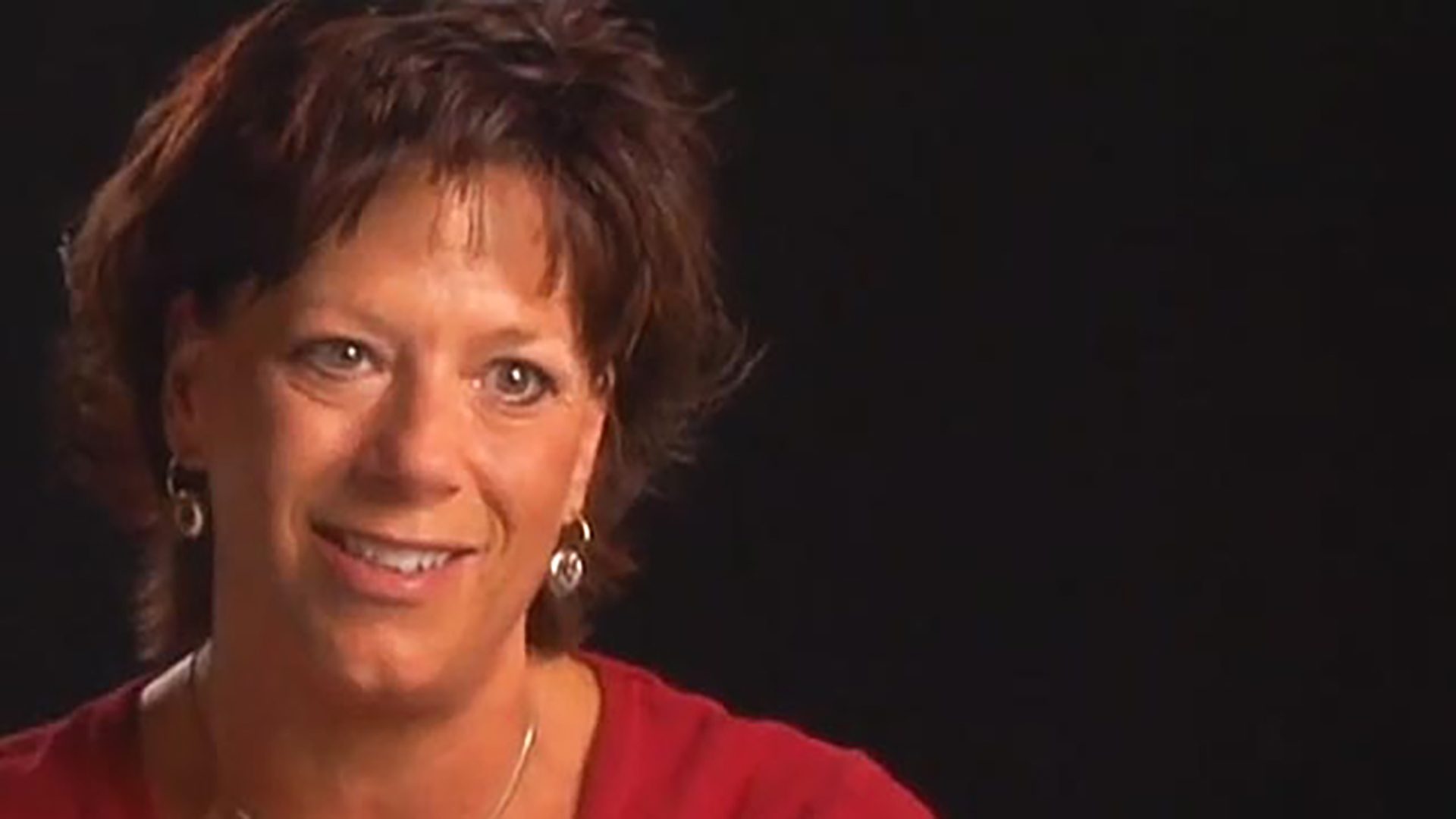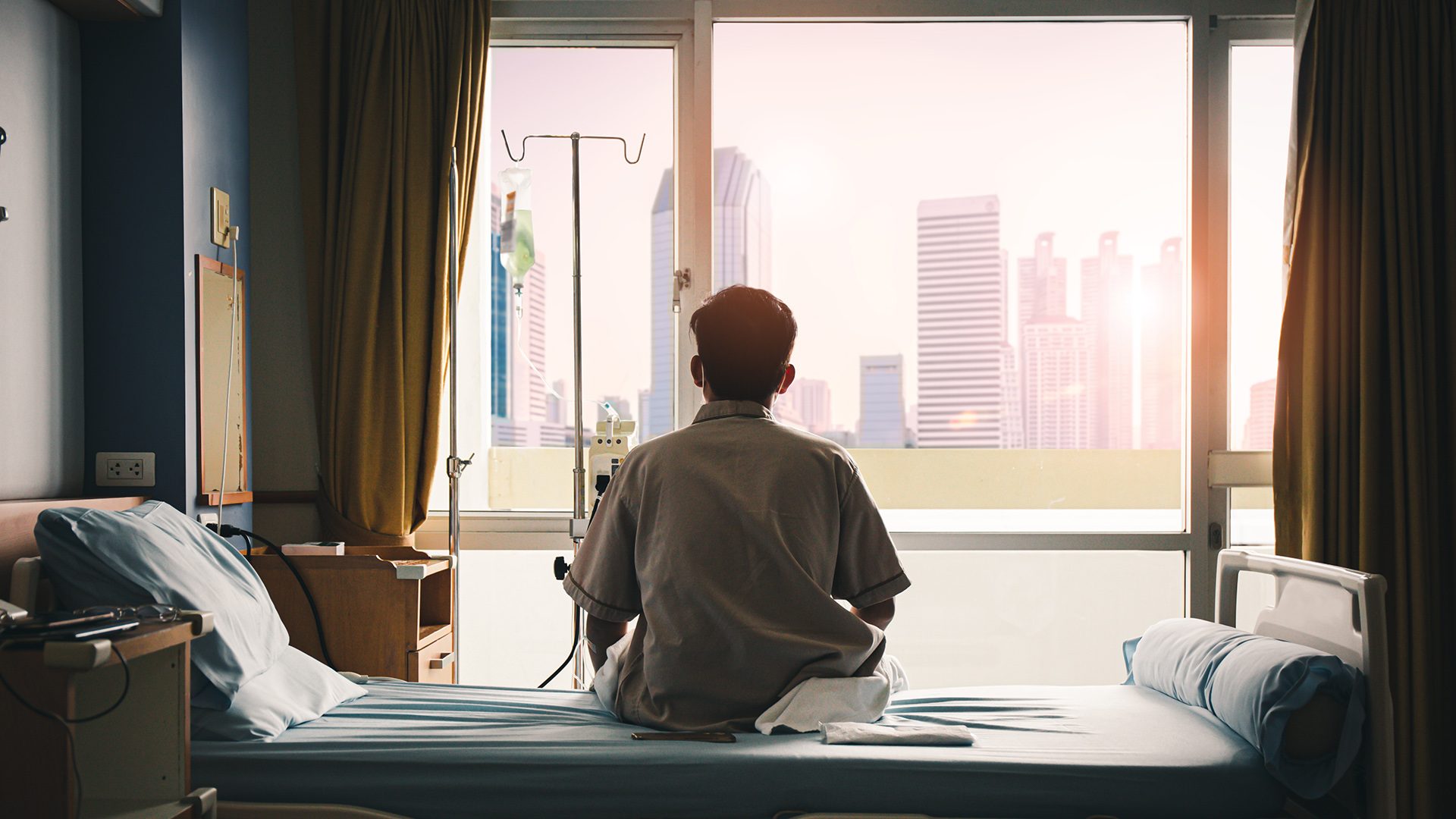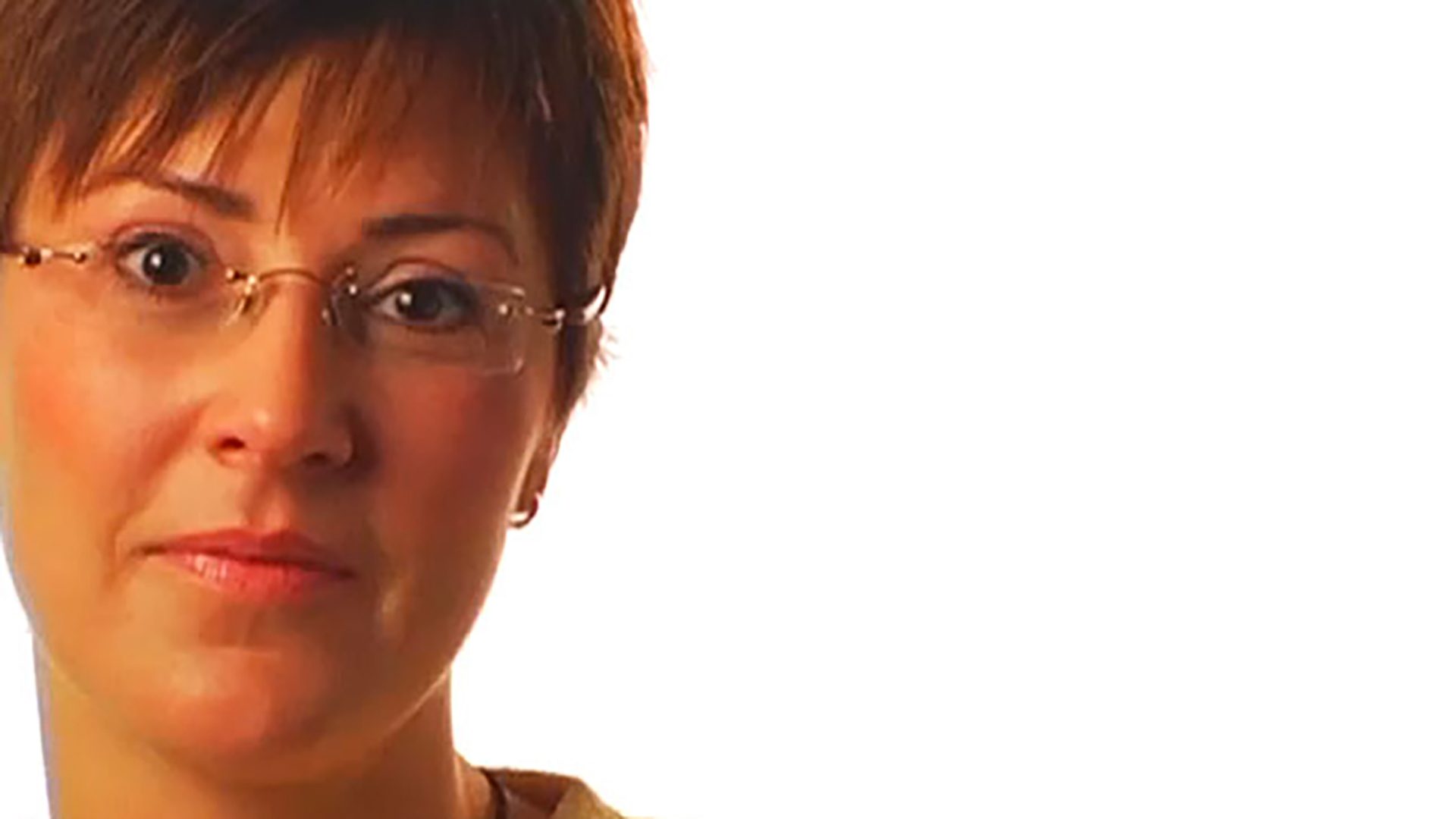Survivor Interview – Angie M.
Angie is a multiple myeloma survivor. She talks about aftereffects of treatment, developing Raynaud’s syndrome, and losing her parents to cancer.

I became a multiple myeloma survivor when I was diagnosed in January 2001.
Multiple myeloma is a blood cancer in your bone marrow. Your plasma cells multiply, and your bone creates enzymes that deteriorate your bones, so your bones start breaking.
Before I found out, I just thought I had pulled a muscle in my rib cage. I let it go for quite some time until finally I went to the doctor and then they sent me for tests. I had four broken ribs and severe pain in my back. When I had X-rays done, and I actually saw my bones, my skull looked like Swiss cheese from the holes. I had deterioration in ninety percent of my body through my bones.
After I went through my chemotherapy and stem cell transplant, I had to decide whether or not I was going to go on a maintenance program. My doctor said, “There’s no guarantee that it is going to work.” It was a maintenance program of interferon. So I had to give myself injections of this drug every other day, and they wanted me to do it for a year. I lasted about nine months because I had severe depression from the interferon, and I had leg cramps. You get flu-like symptoms every time you have an injection. That was very difficult to do because I’d give myself a shot, and then I’d have a fever and chills all day. Then the next day I’d be fine, and then the next day I’d have the same thing all over again. I did it for nine months until I said, “Enough is enough.” I just couldn’t take it anymore. I’m in remission, so we don’t know if it was just from the stem cell transplant or doing the maintenance program for nine months. It’s a chance you take.
When I was diagnosed with multiple myeloma, I was an aerobics instructor. I had to stop exercise for a year, but I still tried to exercise somewhat at home. My parents got me a treadmill, and I walked every day. Walking five minutes, for me, felt like running five miles, but I was bound and determined to keep exercising. It made me feel better, and I knew I could probably recover faster if I continued to exercise. They say that my bone density now is above normal. I contribute that to all my exercises and the weight training that I continued to do since I’ve been diagnosed.
Unfortunately, because of the high dose chemotherapy, they told me that I would go through menopause, which stunk. It was awful. I had to go on synthetic hormones, which I’ve now decided to go off of. I use natural alternatives. It was difficult to go through menopause at thirty-six. I didn’t know what was happening because I was going through a treatment with interferon after I had the chemotherapy. I started getting severe depression, night sweats and mood swings. So I really wasn’t sure. And then when I went back to my oncologist, he said it’s the menopause.
Raynaud’s Syndrome is when your fingers get numb from the tips down to your knuckle. They turn white, and you really don’t have any feeling in your fingers. It normally happens with a change in temperature. So a lot of times after I teach an aerobics class, my body’s very warm, and then when I stop exercising, then I get the Raynaud’s through my fingers. My oncologist wasn’t sure if it was actually caused from the chemotherapy or if it’s something that I had just developed.
When I had to have the stem cell transplant, I knew that I would have to be away from my children. I was a stay-at-home mom and had never been away from them before. So that was very difficult for me to have to leave them during that process. We told them what was going on. It was devastating to them, at first, but I think they realized that I was with the right doctors, and they felt confident that I was going to be okay. We took a trip to New York and brought them to the facility that I was being treated at, so they could actually see where I was going to be. My youngest one, I don’t think, really understood what was going on. He just knew that something wasn’t right. I believe they’re fine with it now. We talk openly about it. They see me walking around, and I’m well and getting through things fine. As far as I know, they don’t show any signs of worrying about it.
We had a lot of support through our community and with our family when I found out I was diagnosed. My family jumped in to help take care of the kids since we decided to go to New York City for treatment, which was four hours away. We had to go back and forth a lot. So we did have support through our family coming in.
My dad got cancer two months after I did. Then, in November of that year, my mother got cancer. So there were three family members. Boom. We were hit pretty hard that year. I lost my mom and my dad both, so that was very difficult for me. I did have a lot of guilty feelings, especially when my mother died. My dad and I were both diagnosed with cancer two months apart. So she was a big caregiver for us. She was back and forth, taking care of my kids and getting food. Right when we found out we were in remission, she started limping. Sometimes I think that if she wasn’t so busy worrying about me and my dad, maybe she would’ve noticed something was wrong. She had lung cancer, and it had metastasized to her bones. She just didn’t make it through treatment. She never even got to get chemotherapy. She started radiation and then she died. It was very, very hard. So I definitely get a guilty feeling about that.
I don’t think my husband left my side for almost a whole year. His company was really great as far as letting him take off work. I relied on him for everything, as far as getting me to my doctor, who was four hours away. So he had to drive me to New York City every month and drive me home. And take off work and do things around the house because with myeloma, you’re not allowed to lift anything more than five pounds. So he had to basically take care of a lot of things. The kids had to get used to that. It was difficult to get used to somebody else doing things for you when you were used to doing them for yourself. I know I got into trouble a lot for running the vacuum and trying to do laundry. It’s amazing though. You hate doing laundry, or you hate running the vacuum. And then when you can’t do it, you want to do it.
I want to be there for my children. I enjoy being with them, doing their daily activities, and running them where they need to go. I think a lot of times people think they’re invincible. And it can’t happen to them. I never, ever thought that I would’ve had the news that I got that day. That phone call was something I’ll never forget because I just thought I had a pulled muscle. When they call and say, “You have cancer,” your whole life changes in a matter of a second.
When I was diagnosed, there was not a lot of hope as far as reading things about the disease. It was very negative. There was no cure. Until we found a Web site through the Multiple Myeloma Research Foundation that had hope. I believe that letting people know that you’re still okay, and you’re out there with this disease is so important because when I was diagnosed, I sought someone to talk to that was still living with the disease.
We live in a very small town, so there really was not a support group in our area that was easy to get to. I became a myeloma mentor through the Multiple Myeloma Research Foundation. I do public speaking. I talk to other cancer patients that need support, someone to talk to, talk with pharmaceuticals companies and doctors that might have questions about how I dealt with the disease and how I manage it at this point. Usually when I go speak, they want me to tell my story, how I found out I got myeloma, what my reaction was when I was diagnosed, how I dealt with the treatments, and how my family accepted it.
Blood Cancer Advocacy Day is important because we bring awareness to Congress for funding for blood cancers. It’s very powerful when you get a group of hundreds and hundreds of blood cancer survivors and storm Capitol Hill. We get the word out, and it’s just a great, powerful day with everyone when they get together like that. If you want to get involved, another great way is to just write a letter to your Congressman and stress the importance of research for the blood cancer. If you can’t get there, write a letter.
My name is Angie Minnick, and I’m a four-year multiple myeloma survivor.

